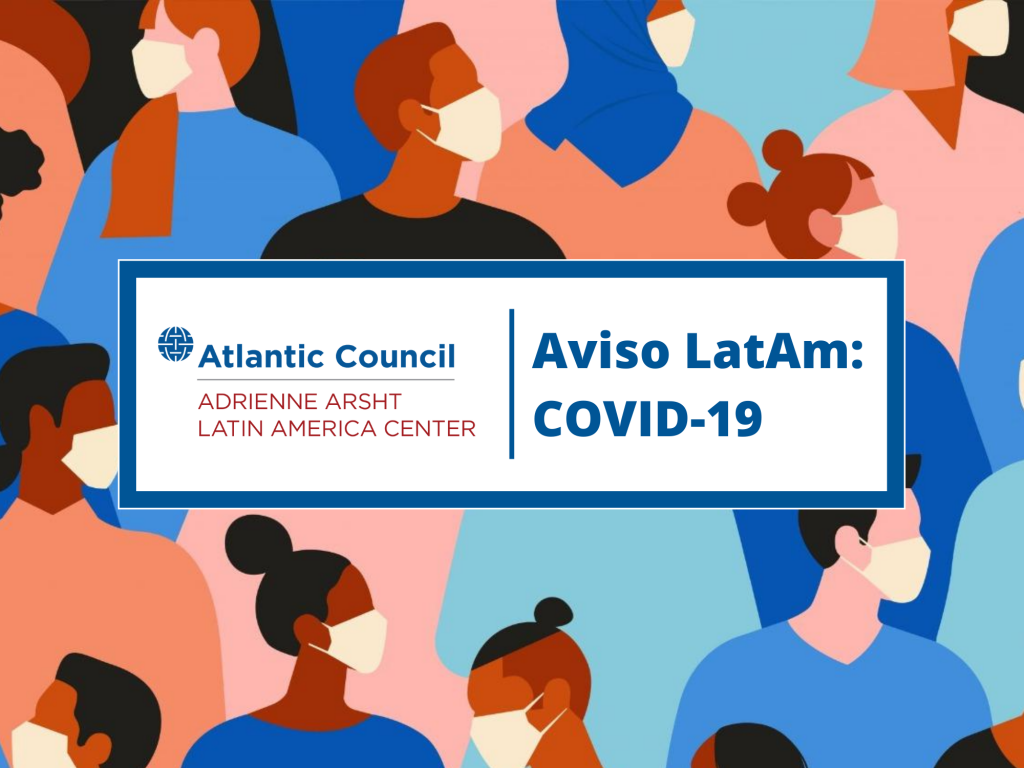What you should know
- 2.7 percent: The average economic growth expected for Latin America and the Caribbean (LAC) in 2022—a considerable setback from the region’s robust economic recovery in 2021 of nearly 7 percent.
- Diplomacy: Colombia and Venezuela officially re-established relations.
- Chile: On Sunday, Chileans will vote to approve or reject a new draft constitution. If approved, the text will replace the 1980 legal charter written under the military government of Augusto Pinochet.
Monitoring economic headwinds and tailwinds in the region
- Guyana: The economy is expected to grow by 52 percent on the back of oil exploration.
- Paraguay: President Mario Benítez vetoed legislation to incentivize cryptocurrency mining, citing concerns about its sustainability and value for the economy.
- Andes: The Andean Community of Nations (CAN) encouraged Chile, Venezuela, and Argentina to join the bloc at its meeting this month, and accepted Turkey as an associate state.
- Argentina: The government announced a program to encourage formalization, allowing workers to maintain their social benefits for a year after shifting from all-cash to official payroll jobs.
- Chile: The International Monetary Fund (IMF) issued a $18.5 billion credit line as a precautionary measure against global uncertainty.
- Brazil: The Fertilizer Congress discussed the impact of the Russian invasion of Ukraine, focusing on its National Fertilizer Plan to reduce dependency on imports and logistical improvements.
- Mendoza: The Argentine province’s tax authority began accepting stablecoins – cryptocurrencies pegged to another reference asset – last week as a step towards more digitalization and crypto use in Argentina.
In focus: India looks for partners in LAC
India’s Minister of External Affairs, Subrahmanyam Jaishankar, visited Paraguay, Brazil, and Argentina last week – the first major Indian trip to the region in nine years. Key areas of discussion included cooperation on trade, defense, and pharmaceuticals. The trip began with Jaishankar opening a new Indian embassy in Asunción and meeting with Paraguayan officials.
In Brazil, he emphasized the region’s potential as a “business hub” for India while meeting with private-sector organizations, and reached agreements on broadcasting and taxation. At his last stop in Argentina, Jaishankar discussed security collaboration, joint production of material, and the possibility of Argentina acquiring India’s domestic fighter jet. Jaishankar and his Argentine counterpart, Santiago Cafiero, also agreed on hosting bilateral conferences on pharmaceutical production, and explored Argentina’s role in vaccine manufacturing.
Health + Innovation
- Mexico: COVAX will send 10 million doses of Pfizer COVID-19 shots for children by the end of September.
- CanSino Biologics: The Chinese pharmaceutical company, which sells a one-dose shot in Mexico, is seeking approval for an inhaled version of the COVID-19 vaccine.
- Honduras: Spain issued a $70 million loan to fortify the Central American country’s health infrastructure.
Geopolitics of vaccine donations: US vs. China
- The United States outpaces China in its donations of COVID-19 vaccines to Latin America and the Caribbean, with Colombia and Mexico topping the list. The region has received roughly 52 percent of all US COVID-19 vaccine donations. To learn more, visit our COVID-19 vaccine tracker: Latin America and the Caribbean.
